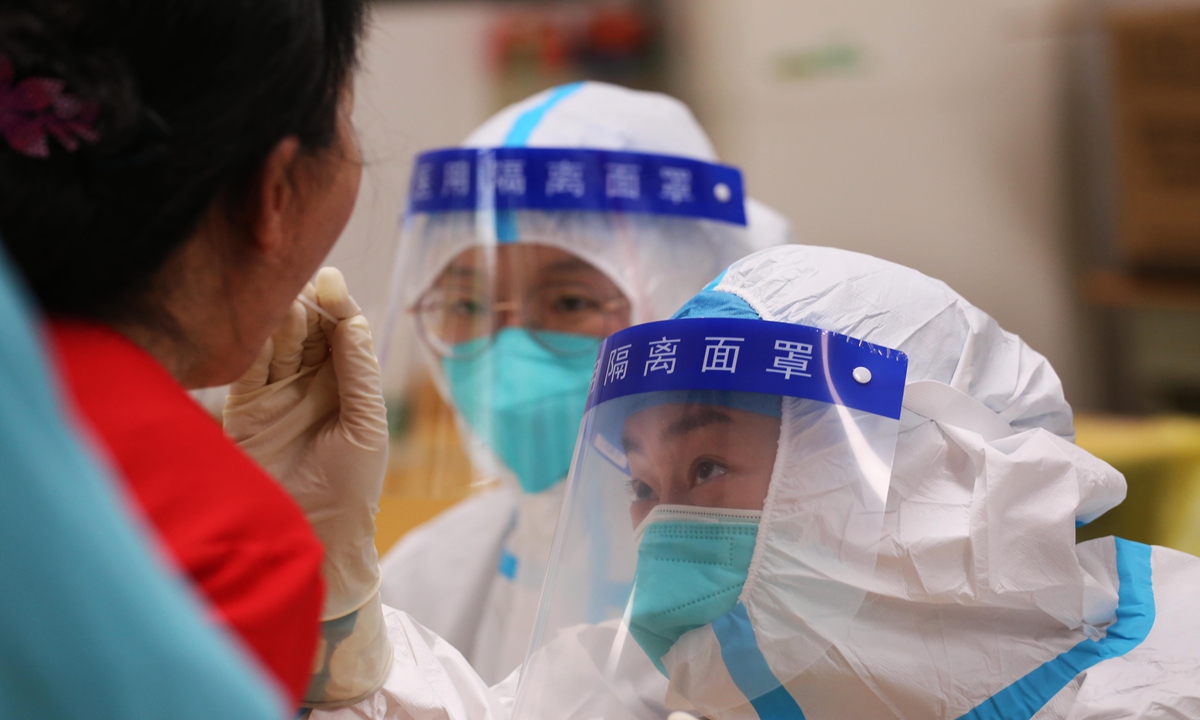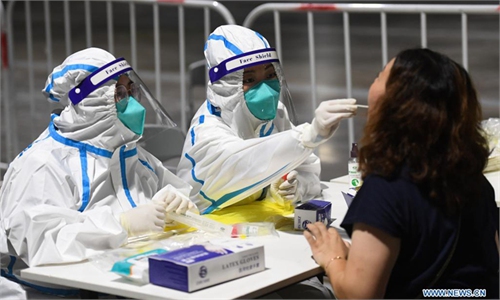Nanjing adopts 2nd round of citywide nucleic acid testing as 5 provinces report related cases

Medical workers take swab sample from a woman for a COVID-19 test in Nanjing, East China's Jiangsu Province on Sunday. Nanjing, which has a population of more than 9.3 million, carried out a second round of citywide nucleic acid testing starting on Sunday. Photo: VCG
In the city's first round of testing four days ago, a total of 57 positive cases were found.
In the first round, 9.2 million people were tested. All the confirmed cases were related to the airport, said local officials at a news conference on Sunday. Local authorities said they will start a second round of testing from 11 am Sunday.
On Sunday morning, Nanjing adjusted one medium-risk area for COVID-19 to a high-risk area, and four new medium-risk areas were announced for the city.
As of Sunday afternoon, a total of five provinces had reported cases of COVID-19 related to the Nanjing airport flare-up - Zhongshan in South China's Guangdong Province, Mianyang in Southwest China's Sichuan Province, Hexian county and Wuhu city in East China's Anhui Province and Shenyang in Northeast China's Liaoning Province.
The source and transmission route of the virus is still under investigation. But the airport outbreak in Nanjing is highly likely to be related to imported cases, said Fang Zhongyou, director of Nanjing Municipal Health Commission, on Wednesday.
Nanjing authorities have not released information on the variant that caused the outbreak, but Zhuang Shilihe, a Guangzhou-based vaccine expert, told the Global Times it is highly likely to be the Delta variant first reported in India.
"Based on the experience of a surge in Ruili, Southwest China's Yunnan Province and Guangzhou in South China's Guangdong Province, this wave in Nanjing is likely to last at least another two weeks," Zhuang said.
A Beijing-based immunologist told the Global Times that "many places in China have reported infections related to the Nanjing airport, which were scattered around the country, so the risk of transmission is relatively high.
As to why Nanjing adopted another round of citywide testing a few days after the first round, the local CDC said that because there are a number of medium- and high-risk areas in the city, the public are still at a relatively high risk of infection. Also, there may be some infected citizens who were not found during the first round testing.
If the COVID-19 outbreak spreads because of refusal to participate in the nucleic acid testing due to personal reasons, those citizens will be subject to legal liability, officials noted at the news conference.

